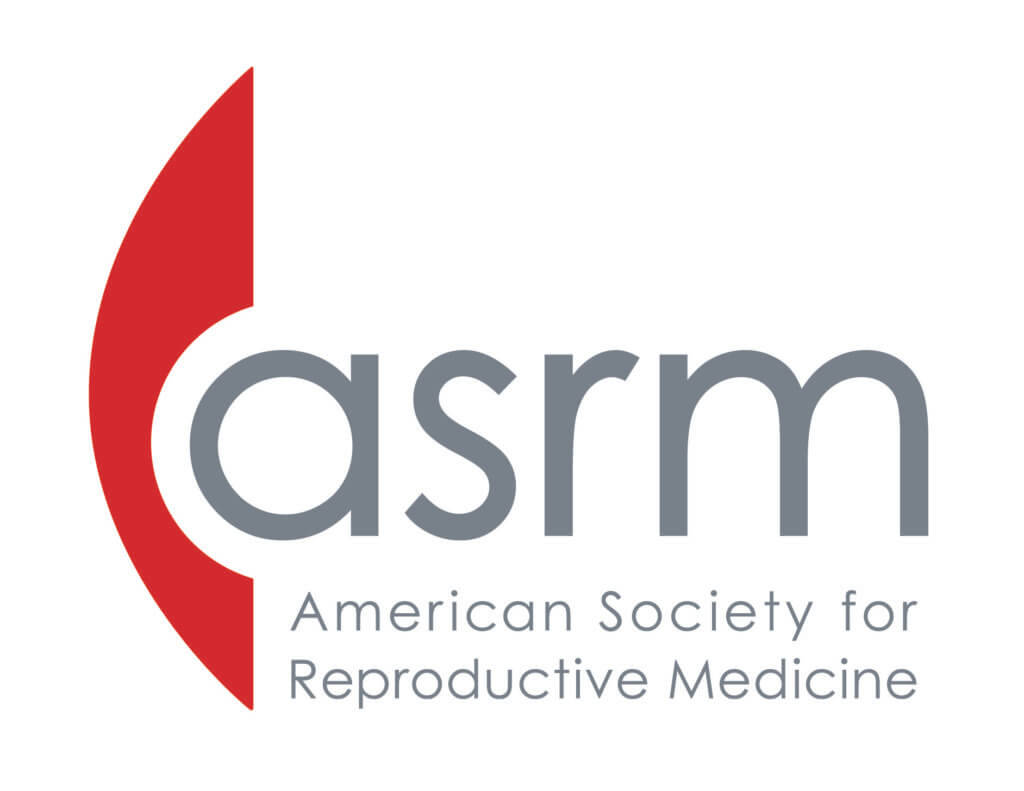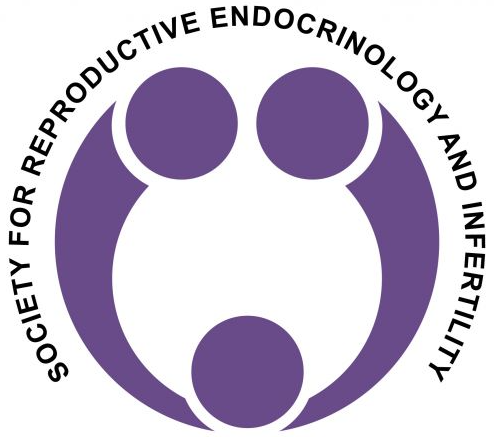Originally posted on Minnesota MDNews
By Jenna Haines
Tuesday, June 18, 2019
Compassionate, evidence-based fertility services for all individuals and couples looking to conceive propels reproductive care forward at the Center for Reproductive Medicine.

According to the CDC, approximately 6% of women in the U.S. between the ages of 15 and 44 experience infertility, and 12% experience impaired fecundity — difficulty getting or staying pregnant. The Center for Reproductive Medicine has been helping individuals and couples in the Twin Cities beat these odds and start families of their own since its establishment in 1987 by Paul Kuneck, MD, and Bruce Campbell, MD.
While Drs. Campbell and Kuneck both retired in 2017 and 2018, respectively, their legacy of inclusive, comprehensive reproductive care is carried on through the Center for Reproductive Medicine’s experienced and talented staff. This specialized team is comprised of embryologists, andrologists, nurses, psychologists, geneticists, laboratory technicians, support staff and physicians, including the two newest team members selected to fill the founders’ roles — Meg M. Hopeman, MD, and Joshua D. Kapfhamer, MD, MA.
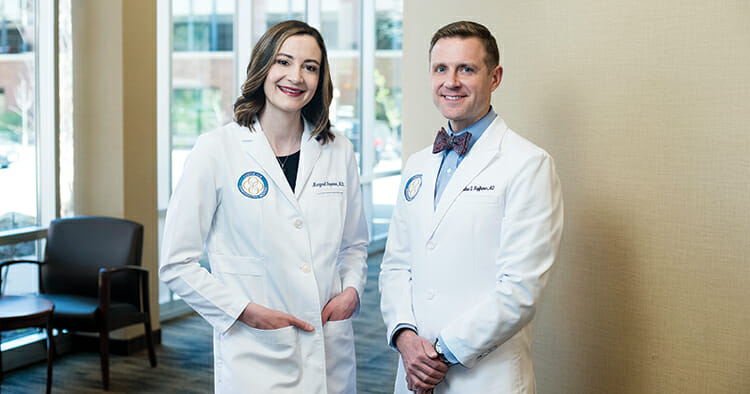
Providing Patients With Options
Drs. Hopeman and Kapfhamer are both reproductive endocrinologists/fertility specialists based out of the Center for Reproductive Medicine’s Minneapolis office. Their mission is to help guide individuals and couples through their fertility treatment, including these options:
- Egg donation is a procedure in which an egg donor (known or anonymous) undergoes a full in-vitro fertilization (IVF) cycle before her eggs are fertilized by sperm from a patient, partner or donor. The resulting embryos are then transferred to the uterus of the intended parent or gestational carrier for the duration of the pregnancy.
“This is a great option for women who cannot produce eggs on their own or who are unlikely to produce eggs with a high likelihood of success,” Dr. Kapfhamer says. “This includes women with advanced maternal age, certain genetic diseases, primary ovarian insufficiency or who have undergone medical treatments such as chemotherapy or radiation therapy. It is also a great option for single men or men in same-sex relationships.” - Egg freezing involves superovulation, the process of stimulating a woman’s ovaries with hormone injections to produce multiple mature follicles. Eggs are then retrieved and cryoprotectants are used to protect them during rapid cooling to subzero temperatures, halting all biological function and placing the eggs into glass-like states.
Egg freezing is often performed electively for women who have chosen to defer pregnancy for personal reasons.
“Women are born with a set number of eggs and gradually lose them throughout their lifetime,” Dr. Hopeman says. “The most rapid decline typically begins around age 37. The advantage to freezing eggs is that it maintains or preserves that woman’s fertility potential at that age.”
Women who have received a medical diagnosis, such as cancer, that requires a treatment or series of treatments that can affect their future fertility, also benefit from this fertility preservation technique.
“Chemotherapy and radiation, for instance, can destroy ovarian follicles and damage or destroy a woman’s eggs,” Dr. Hopeman says. “However, we can do egg or embryo freezing to preserve the patient’s fertility before she goes through treatment. Often, these women are referred by their oncologist, and we are able to get them in to speak with our fertility preservation nurse practitioner — usually within 48 hours of the initial referral.” - Gestational surrogacy is when a woman carries a pregnancy for another individual or couple. This is a good option for single men, same-sex male couples and women who are unable to carry a pregnancy.
“Some women are born without a uterus or with an abnormality of the uterus that would preclude childbearing,” Dr. Kapfhamer says. “Others may have had a hysterectomy for various reasons. In other cases, uterine pathology or medical conditions can make it impossible or inadvisable to carry a pregnancy. For these individuals, having another woman carry a child for them may be their best or only option.” - IVF was the first procedure developed to facilitate the fertilization of eggs outside the body. A woman first undergoes superovulation, and then the eggs are retrieved and inseminated with a partner or donor’s sperm in the embryology laboratory. Once fertilized, the embryo is transferred to the woman’s uterus.
Before transfer, embryos can undergo preimplantation genetic testing for aneuploidy (PGT-A). This is when a few cells from the embryo are biopsied and sent for genetic testing to determine if it contains too many or too few chromosomes. Chromosome abnormalities are the leading cause of miscarriage. In appropriately selected patients, this technique can reduce the risk of miscarriage.
An individual or couple can also opt for preimplantation genetic testing for single gene disorders (PGT-M), which allows embryos to be screened for specific diseases, such as cystic fibrosis, if there is concern that a biological parent may pass a specific disease to a child. - Intracytoplasmic sperm injection (ICSI) is used in conjunction with IVF for severe male factor infertility or when PGT is being considered.
“This is a technique in which we take one sperm and inject it directly into an egg, as opposed to mixing many sperm with each egg and letting them fertilize on their own,” Dr. Kapfhamer says. “ICSI is also used with surgically retrieved sperm when there are few or no sperm in the ejaculate. Finally, ICSI is used for individuals doing preimplantation genetic testing or those utilizing frozen eggs.” - Intrauterine insemination (IUI) is a technique in which sperm are placed directly into the uterus, allowing a high concentration of quality sperm to be deposited in close proximity to the egg.
“In combination with superovulation, IUI is really a good first step for women who have been diagnosed with unexplained fertility,” Dr. Hopeman says. “It can also be used in certain types of male-factor infertility.” - Therapeutic donor insemination (TDI) is used when there are very few or absent sperm in a male partner’s ejaculate or for single women and female couples.
“The majority of these treatments are performed using anonymous donor sperm that has been tested according to FDA regulations and frozen by a sperm bank,” Dr. Hopeman says. “Some couples, however, will choose a sperm donor who is known to them, and we recommend that these donors be tested the same way that any anonymous donor would be for the safety of the couple.”
The Center for Reproductive Medicine also offers consultation and diagnostic services for those who are not yet ready to conceive but want to review fertility or identify any potential issues that they may have to contend with.
“Coming here does not mean you have to undergo treatment,” Dr. Kapfhamer says. “Some couples are not ready to make the jump into fertility treatment. In fact, some may not even need it. We are always happy to sit down and meet with individuals or couples to go through what a basic fertility evaluation would look like or just to talk about general reproductive physiology, what the menstrual cycle is, how to time intercourse and any lifestyle changes necessary to maximize fertility potential.”
Regardless of patients’ individual goals or unique challenges, the physicians at the Center for Reproductive Medicine want all patients to walk away feeling both informed and heard. As a result, they prioritize face-to-face time — spending, on average, 75 minutes on each initial consultation.
“We are focused on helping patients identify what is the best therapy for them,” Dr. Hopeman says. “Infertility is really complicated, and it pervades all aspects of a patient’s life — the medical, emotional and financial. We recognize that what is best for one patient is not going to be best for every patient, and we work very hard to provide a framework of education on the evidence-based medicine that exists so that we can help patients develop a solid understanding of their condition and options. From there, they can make an informed decision on how aggressively they would like to move forward in treating their infertility.”
Meg M. Hopeman, MD
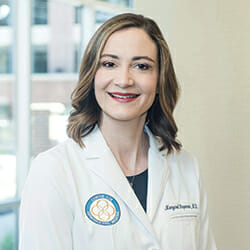 After earning her medical degree from the University of Minnesota Medical School, Dr. Hopeman completed her residency in obstetrics and gynecology at Barnes-Jewish Hospital, the teaching hospital for Washington University School of Medicine, in 2014. She then pursued her fellowship training in reproductive endocrinology and infertility from the University of Pennsylvania, where she also completed a Master of Science degree in clinical epidemiology and was awarded an Institutional National Research Service Award in reproductive epidemiology by the National Institute of Health’s Office of Extramural Research.
After earning her medical degree from the University of Minnesota Medical School, Dr. Hopeman completed her residency in obstetrics and gynecology at Barnes-Jewish Hospital, the teaching hospital for Washington University School of Medicine, in 2014. She then pursued her fellowship training in reproductive endocrinology and infertility from the University of Pennsylvania, where she also completed a Master of Science degree in clinical epidemiology and was awarded an Institutional National Research Service Award in reproductive epidemiology by the National Institute of Health’s Office of Extramural Research.
After concluding her fellowship, Dr. Hopeman was selected to take over for Bruce Campbell, MD, and hired as a reproductive endocrinologist/fertility specialist at the Center for Reproductive Medicine in September 2017.
“Dr. Campbell was one of the big reasons I chose to start my practice here,” Dr. Hopeman says. “Both he and Dr. Paul Kuneck were high-integrity individuals who did everything possible to provide evidence-based care and to make this often difficult experience in patients’ lives a little more tolerable.”
Dr. Hopeman is board-certified in obstetrics and gynecology and board-eligible in reproductive endocrinology and infertility. She has contributed to several peer-reviewed publications and is a member of the American Society for Reproductive Medicine, The American College of Obstetricians and Gynecologists and the Gold Humanism Honor Society.
“Reproductive medicine is an emotionally charged field in which a lot of misinformation is spread through online resources and social media. At the Center for Reproductive Medicine, our goal is to help our patients take a step back, look at the big picture and truly focus on evidence-based medicine — the treatments and interventions that have been proven by science to be effective.”
— Joshua D. Kapfhamer, MD, MA
Joshua D. Kapfhamer, MD, MA
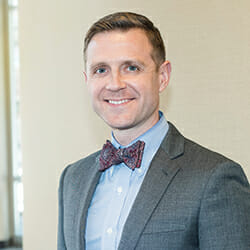 Dr. Kapfhamer earned his medical degree and Master of Arts degree in bioethics at the Medical College of Wisconsin before entering the college’s obstetrics and gynecology residency program in 2009, during which time he received both the Dr. John J. and Joan M. Brennan Endowed Award in obstetrics and gynecology and the AAGL’s Recognition of Excellence in Minimally Invasive Gynecology
Dr. Kapfhamer earned his medical degree and Master of Arts degree in bioethics at the Medical College of Wisconsin before entering the college’s obstetrics and gynecology residency program in 2009, during which time he received both the Dr. John J. and Joan M. Brennan Endowed Award in obstetrics and gynecology and the AAGL’s Recognition of Excellence in Minimally Invasive Gynecology
After completing his residency in 2013, Dr. Kapfhamer began his fellowship in reproductive endocrinology and infertility at the University of Iowa Hospitals & Clinics and continued as faculty after graduation. In August 2018, he joined the Center for Reproductive Medicine’s team as a reproductive endocrinologist/fertility specialist, taking over for Dr. Paul Kuneck.
“It is an enormous privilege and honor to follow in his footsteps,” Dr. Kapfhamer says. “He is the one who really instilled the goals and philosophy of this practice and helped create a welcoming environment for both staff and patients. I truly enjoy coming to work every day.”
Board-certified in obstetrics and gynecology and reproductive endocrinology and infertility, Dr. Kapfhamer is a fellow of The American College of Obstetricians and Gynecologists, a member of the American Society for Reproductive Medicine, and a member of the Society for Reproductive Endocrinology and Infertility. He has been published in numerous peer-reviewed journals and presented both locally and nationally on a number of reproductive medicine topics.
Embracing All Families
In addition to offering a number of advanced fertility care options, the specialists at the Center for Reproductive Medicine understand that no two families are alike. They strive to provide customized, compassionate care to all those looking to conceive, including single patients, patients of advanced maternal age and LGBTQ patients.
“We have elected to pursue additional training in LGBTQ-related medical issues,” Dr. Hopeman says. “Approximately one-fifth of my patients are LGBTQ, and it is important that we continue to offer the best quality care to all individuals and couples we see and work with on a daily basis.”
Dr. Kapfhamer agrees.
“Everyone has their own story and is on their own journey,” Dr. Kapfhamer says. “Individuals come in here at a different place in a different situation with different goals in mind. However, the common goal is the same. I will treat every person who walks through my door and do what I can to help them build a family.”
For more information about the Center for Reproductive Medicine, visit ivfminnesota.com or call 612-863-5390.

